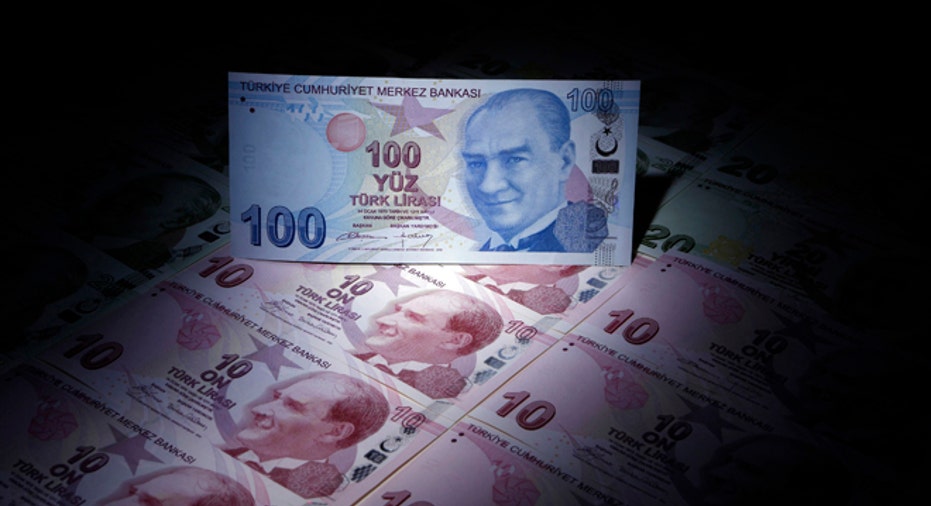Turkey Stuns With Steep Rate Hike

Turkey's central bank stunned investors with a huge hike in interest rates on Wednesday, stirring hopes the drastic action would short-circuit a vicious cycle of selling in emerging markets and revive risk appetite in the developed world.
The bold move even managed to overshadow the U.S. Federal Reserve's meeting at which it is widely expected to trim its asset buying program by another $10 billion a month.
Turkey followed India by tightening policy at a midnight meeting of its central bank, with the stunning hike in the overnight lending rate of 425 basis points taking rates all the way to 12 percent.
"Desperate times call for desperate measures, this is a confidence saving measure," said Gennadiy Goldberg, an interest rate strategist at TD Securities in New York.
"It will definitely hurt but it might be enough to stem the bleeding. It looks like the lira acted positively, whether it lasts is anyone's question."
Early signs were that the bold move might be enough to stem a rout in the Turkish lira which surged to 2.1950 per dollar, and away from Monday's historic low of 2.39.
More emerging market central banks are expected to tighten policy in a bid quell a mix of inflationary pressures at home and a flight of capital abroad. South Africa's central bank meets on Wednesday.
Just the prospect of action had helped stabilise stock markets across the globe after several days of hectic selling. The MSCI emerging equity index edged up 0.3 percent from a 4-1/2 month low.
On Wall Street, the Dow ended Tuesday with gains of 0.57 percent, while the S&P 500 rose 0.61 percent.
The calmer tone was reflected in the market's favoured measure of volatility, the VIX index, which dropped over 9.0 percent on Tuesday to 15.80 And off a peak of 18.99.
Currencies leveraged to commodity prices and global economic growth also benefited from the better mood.
The Australian dollar jumped a third of a U.S. cent to $0.8800 in the wake of the news from Turkey. The Aussie is often used as a proxy for hedging against stress in less liquid emerging markets.
Going the other way, the safe-haven yen gave up some of its recent gains with the dollar rising to 103.31 yen from a seven-week trough of 101.71.
The retreat in the yen should help Japanese shares recoup some of their losses, with Nikkei futures pointing to a firm start.
While emerging markets could still be vulnerable to whatever the Fed decides on U.S. policy, investors seemed to have made peace with a steady unwinding of exceptional stimulus.
Benchmark 10-year Treasury yields, for instance, have steadied at 2.75 percent compared to a peak of 3.04 percent at the start of the month.
In commodity markets, the main mover was oil as U.S. crude hit its highest so far this year on expectations that supplies were dwindling at the contract's benchmark delivery point.
U.S. light crude oil Was up $1.69 at $97.41, while Brent crude added 76 cents to $107.45 a barrel.
(By Wayne Cole)



















